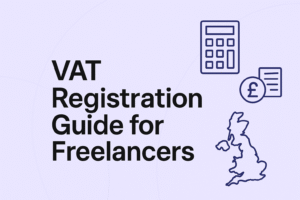
NRCGT Explained: A Guide for Non-UK Residents
- Non-Resident (NRCGT)
- Quick Read
NRCGT Explained: A Guide for Non-UK Residents
- Recent Thinking
- Mike Smith
- Last updated
A Guide for Non-UK Residents Selling UK Property
If you’re a non-UK resident who owns property in Britain, you may be wondering what happens when you decide to sell. The UK government introduced Non-Resident Capital Gains Tax (NRCGT) to ensure that non-residents pay tax on the profit (or ‘gain’) made from selling UK property.
In this guide, we’ll break down what NRCGT is, who it applies to, the tax rates, and how to report it.
What is Non-Resident Capital Gains Tax (NRCGT)?
NRCGT is a tax that applies to non-residents disposing of UK property or land. In simple terms, if you live abroad and sell a UK property for more than you paid, you may owe UK tax on the gain.
This applies whether the property is residential or commercial, and also extends to shares in property-rich companies (companies that get 75% or more of their value from UK land or property).
When did NRCGT come into effect?
There are 2 key dates here:
– April 2015 – NRCGT applied to UK residential property disposals by non-residents.
– April 2019 – Extended to include UK commercial property, land, and indirect disposals (such as property-rich entities).
This means almost every UK property disposal by a non-resident is now covered.
Who pays NRCGT?
You may be liable if you are:
– An individual living outside the UK.
– A non-resident company.
– A trustee or personal representative disposing of UK property.
How is the gain calculated?
The taxable gain is usually calculated from the date the rules came in:
– Residential property – rebased to April 2015.
– Commercial property/land – rebased to April 2019.
This rebasing means you only pay tax on the increase in value since those dates, not since you originally bought the property.
NRCGT Tax Rates
Tax rates vary depending on who is selling but at the time of writing this post:
– Individuals: 18% (basic rate) or 28% (higher/additional rate).
– Trustees & personal representatives: 28%.
– Companies: Pay corporation tax (currently 25%).
Reporting and Payment Rules
One of the most common mistakes non-residents make is missing the strict 60-day deadline.
– You must report the sale to HMRC within 60 days of completion.
– Any NRCGT due must also be paid within 60 days.
– Even if no tax is due (for example, if you made a loss), you must still file a return.
Failure to report on time can lead to penalties and interest charges.
Why is NRCGT important?
The UK property market is still attractive to international investors, but many non-residents are unaware of their UK capital gains tax obligations. Understanding NRCGT before you sell helps you avoid surprises and ensures compliance with HMRC rules.
Key Takeaways
A snapshot of what you need to know:
– NRCGT applies to all non-residents selling UK property or land.
– The rules cover residential, commercial, and indirect disposals.
– Gains are taxed only from April 2015 (residential) or April 2019 (commercial/land).
– You must report and pay NRCGT within 60 days.
If you’re thinking about selling UK property as a non-resident, we offer an all-inclusive fixed-fee service with our fee always agreed up-front with you.
Credits and thanks: HMRC.gov
Disclaimer:
The content included in this blog post is based on our understanding of tax and company law at the time of publication. It may be subject to change without notice and may not be applicable to your circumstances, so should not be relied upon. You are responsible for complying with tax law and should seek independent advice if you require further information about the content included in this post or guide.








